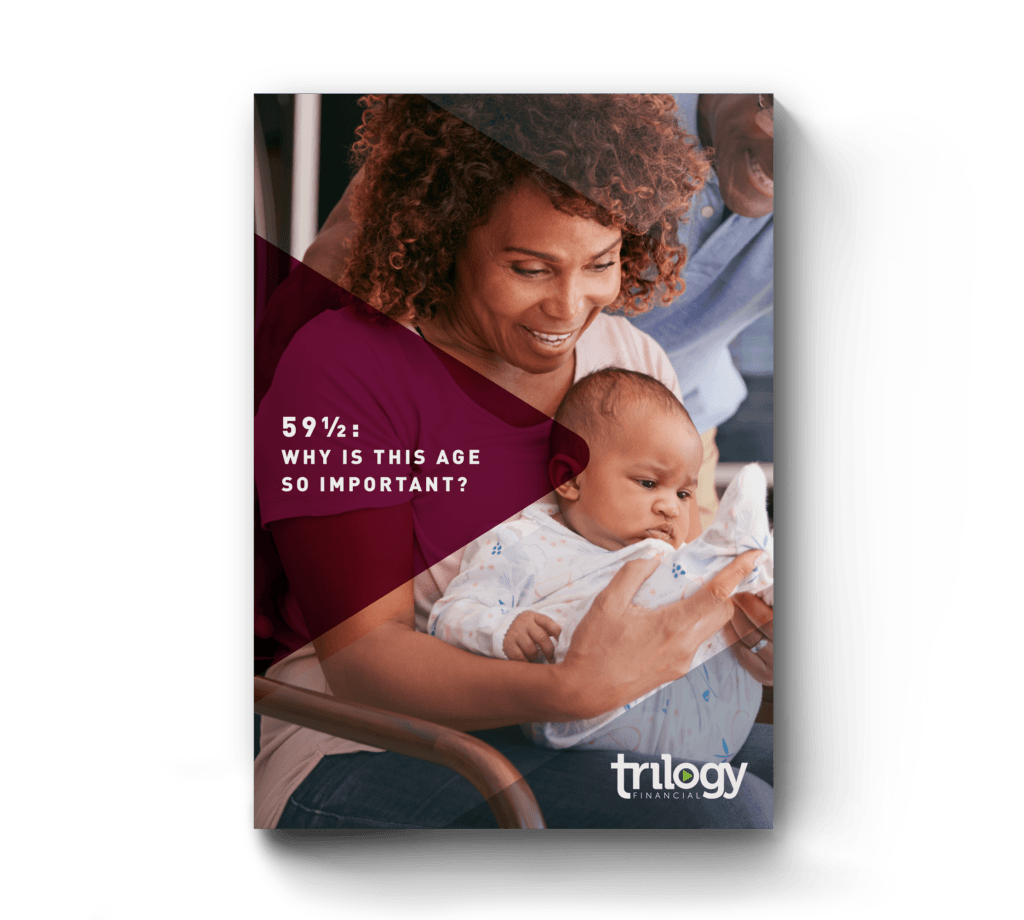“My goal is to provide a meaningful impact on the lives of my clients and the people they care most about.”

“My goal is to provide a meaningful impact on the lives of my clients and the people they care most about.”
MBA in Finance from USC
Trilogy’s “Top 5” Advisors* & Circle of Excellence**
Actively involved in his kids’ activities
Chocolate lover
Passionate about working out and living a healthy lifestyle
Has clients across the country from as far west as Hawaii to as far east as Maine
With over 25 years of experience in the financial services industry, Mike Loo has spent the majority of his time committed to becoming familiar with all aspects of financial, tax and estate planning, especially in the areas of wealth accumulation, distribution strategies and wealth transfer strategies. He understands that to help his clients work toward and maintain financial independence, a comprehensive approach must be taken. Mike prides himself on the personal relationships he’s developed with his clients and takes a proactive approach in connecting with them throughout the year.
Who he does his best work for:
Mike’s primary client base is Gen X’ers (those born between 1965 and 1980), with a tail end of the Baby Boomers and a front end of the Millennials. The people who seek Mike’s help have usually reached a point where the money they’ve saved is “real” or significant to them, and they no longer feel comfortable or have the time/interest in managing their finances.They want the help of an advisor who knows what they’re going through, has a lot of experience, and will be around for a long time. Mike helps clients answer questions on topics such as:
College Planning – How much should I save for college? How am I going to afford paying for college? How much financial aid might I expect when my child goes to college?
Retirement Planning – How much should I be putting away for retirement? What options do I have to save for retirement if I don’t have a 401k? What other options do I have to save for retirement if I’m already maxing out my 401k?
Paying Off the House – Should I pay off my mortgage early? What can I do with the extra money to help my kids start a leg up on their future?
Life Insurance – How much life insurance do I really need? When should I consider buying life insurance?
If you have these or other questions/concerns, contact Mike for an initial phone conversation!
Mike currently resides in Irvine with his family, but his largest number of clients reside in the San Francisco Bay Area, where he helps those in the tech industry with strategies regarding their company stock options. When he’s not working with clients, he is actively involved in his children’s lives and in his own overall health and wellness. He is currently an Investment Advisor Representative with Trilogy Capital, Inc. in which he holds his Series 65 Registration. He also holds his Series 6, 7 and 63 Registrations with LPL Financial. Visit mikeloo.com for more information.
*The Top 5 Advisors is an award given to the top 5 Individual Advisors for the year based on total weighted production.
**The Circle of Excellence is an exclusive conference for Trilogy Financial Advisors. Invitations are given to 20% of Trilogy advisors based on annual production.

Trilogy Financial Services, a Huntington Beach, California-based hybrid managing $3 billion, has acquired E. F. Heagan & Associates of San Juan Capistrano, California, and Mandichak Investment Retirement & Estate Planning, of Laguna Niguel, California.
Terms of the acquisitions were not disclosed.
The two firms add $160 million in assets under management to Trilogy’s total and brings more than 500 new clients. Read More.
Trilogy Financial, formerly part of the National Planning Holdings network bought by LPL Financial in August, says it will affiliate with the independent broker-dealer. The Huntington Beach, California-based group has some 150 financial advisors and over $2 billion in client assets.
The recently implemented SECURE Act can be confusing to understand. With my free eBook and customized advisory services, I can help you navigate how the SECURE Act may impact your financial strategy moving forward. Curious about what it means for you? Download the eBook for an overview of the SECURE Act. We're here to help.

As you approach retirement it's important to explore your options, health-care concerns, and get the best advice to successfully transition into those golden years. Learn how to prepare for retirement and navigate your Social Security benefits. We're here to help.

With proper strategies, you may be able to maximize your opportunities and help manage stress and confusion for your loved ones. Learn the critical details to address when creating your own estate strategies. We're here to help.
A recent survey found that among Millennial parents, nearly half have received financial support from their Baby Boomer parents in the past year, and 69% received financial support specifically for their own young children.(1) Another poll found that 3 in 4 parents with adult children have helped them pay both debts and living expenses.(2)
Clearly, it is common practice nowadays for parents to provide financially for both their adult children and their grandchildren. Many Baby Boomers are at a place where they are financially secure and have the desire to give their kids a leg up from where they were at the same age. For 2019, up to $15,000 can be gifted from one individual to another without having any tax effects. Many parents are reaching that limit with their gifts to their adult children for their own expenses and gifts to their grandchildren to fund their education and contribute towards their future well-being.
When Your Parents Give You Money
One-Time Gifts
The first thing you have to do is decide what to do with the money. Whether or not it is a one-time gift or will be ongoing will greatly influence your decision. If it is a one-time gift, it likely cannot be used to enhance your current lifestyle. Rather, you could use it to strengthen your current position by paying down debt. You could also use it for a one-time luxury, such as a vacation. Another good use would be to invest it to prepare for the future.
Of course, what you choose to do with the money will depend greatly upon your current financial situation and goals. If you decide to save it for the future, that brings up another set of questions. Where should you put the money? What kind of investment opportunities are available? How soon do you plan on needing it? The answer to each of those questions will determine what you do with the money, whether you put it in a money market account, invest in a brokerage account, or use it to fund your retirement accounts.
Ongoing Gifts
Though they are usually more beneficial, ongoing gifts are actually harder to plan for. You have to ask the same questions as above, but you also have many more options. If it will be a regular gift, you could use it to enhance your lifestyle instead of merely paying down debt or taking a vacation. Or you could use it to take advantage of a business opportunity that wouldn’t be feasible otherwise.
The hard part about ongoing gifts is knowing how safe it is to depend on them. If you make decisions based on the gift, what happens if it doesn’t come or is given sporadically? Many people fear sounding greedy or ungrateful if they ask their parents about money that they expected to receive but didn’t. The dependability of the gift money and the kind of relationship you have with your parents should be taken into account when planning for ongoing gifts.
One thing to be careful of, especially with ongoing gifts, is to not let it affect the stewardship of your own money. It is easy to change good habits and loosen the reins on your spending when you have extra money coming in. But is that wise?
Your parents are giving you money because they want to help you. Are they really helping you if you are simply becoming more careless? You should apply the same careful money habits as you would without the gift, even if it creates enough margin where you wouldn’t have to. Remember, what your parents give you is a gift. It is not required nor guaranteed, and you should manage it with that in mind.
When Your Parents Give Your Children Money
A lot of the same issues apply when your parents gift your children money or give it directly to you but for their benefit, especially when you aren’t sure if the gift will be regular and are not comfortable asking.
First, you need to decide if you should use it to meet current needs or future ones. If you save the money for your children’s college education, it could help them pay for a better school, get a better job, and avoid student debt. But if the money is spent today, it could pay for their childcare and thereby enable you to save more for retirement or get a house in a better school district, which could lead to a better education, admission to better colleges, and scholarships to avoid debt. There is no one right answer and it requires careful consideration of your family’s own unique circumstances and priorities.
College Funding
If you do decide to save the money for your children’s future, that brings up another host of questions. Where is the best place to put the money until you need it? A savings account? A 529 Plan? An UTMA? The answer will depend on a number of factors, including how liquid you want the money to be without penalties and how much control you want to maintain over the money. There are a number of options available to you, each with its advantages and disadvantages.
When saving for college, you need to have a target goal in mind. It is important to estimate the cost of college for your child in order to measure how much you need to be investing, the types of investments you should use, and to monitor your progress. Another reason to have a set goal is to avoid overfunding a college account. There should be a stopping point where you no longer invest in a 529 but rather divert the funds elsewhere. While leftover 529 accounts can be transferred to family members or have the funds removed with penalties, it may be better to simply avoid overfunding them in the first place.
Multiple Children
Having multiple children makes things even more complex because it can be hard to keep things fair and equitable. What happens when your parents, who gave a lot towards your firstborn, begin to taper off the gifts with subsequent children? Or perhaps the same amount was given, but it was divided by more and more children? What can you do so that the later children are not at a disadvantage?
Also, what happens when the gifts begin after you already have more than one child? If your parents start funding a college account when your first child is 5 and your second is 1, then the second may end up with a much higher balance upon entrance to college. What can you do and what should you do to help balance things out?
How I Can Help
These are some of the questions that arise when parents gift money to their adult children and grandchildren. Depending on the scenario, things can quickly become complex. Not only do you have to decide what to do with the money, weighing the benefits and opportunity costs, but you have to decide the best way to accomplish your goals with that money.
This is a common situation that my clients find themselves in when they turn to me for help. Together, we first determine the circumstances in which the money was given and the intent behind it. If your parents had a specific purpose in giving you the money, it is often best to honor that purpose.
Next, we discuss how you can use the money in a way that doesn’t distract you from your goals or cause you to become financially irresponsible. We talk through different scenarios in advance and address the “what-ifs” that could occur in each in order to develop a solid plan. My clients really enjoy having me there as a sounding board to bounce ideas off of, as well as to hear my insights based on the experience that I have had myself and with other clients.
If you’ve found yourself the recipient of financial gifts from your parents, or just need someone to help you sort through your own finances, call me at (949) 221-8105 x 2128 or email me at michael.loo@lpl.com. I would love to partner with you so that you can make wise financial decisions to build a secure future for you and your family.
(2) https://www.creditcards.com/credit-card-news/pay-adult-childrens-debt-poll.php
We believe that real Life Planning is progress, not perfection.
Financial Life Planning is about actually starting — taking a few good steps in the right direction and then taking a few more.
Financial Life Planning is fundamentally about taking a few good steps in the right direction and then taking a few more. Trilogy Financial has established regional offices from coast to coast with the clear vision of helping millions of Americans pursue financial independence, every day.
Some advisors associated with this material are registered representatives of LPL Financial (LPL) and are Investment Advisor Representatives (IAR’s) for Trilogy Capital Inc. (TC). Some IAR’s of TC are not registered or affiliated with LPL. Securities offered through LPL. Member FINRA/SIPC. Investment advisory services offered through TC, A Registered Investment Advisor. TC markets advisory services under the name of Trilogy Financial (“TF”), an affiliated but separate legal entity. TC and TF are separate entities from LPL. The LPL Registered Representatives associated with this site may only discuss and/or transact securities business with residents of the United States.